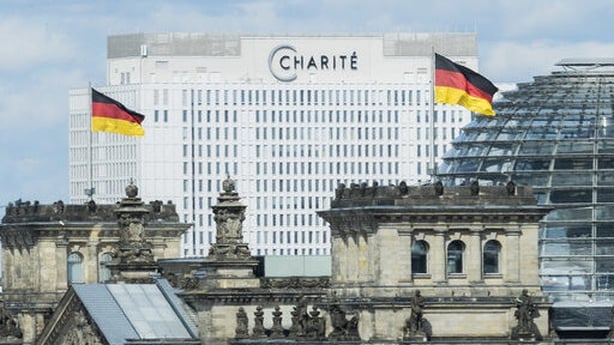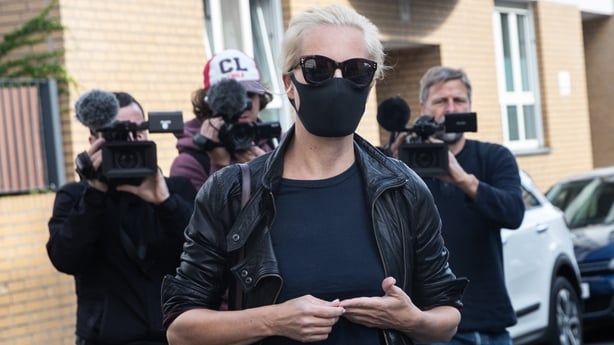Tests carried out on Russian opposition leader Alexei Navalny provide clear proof that he was poisoned by a chemical nerve agent from the Novichok family, the German government has revealed.
It is now demanding explanations from Russia.
"This has given rise to some very serious questions that only Russia can and must answer," said German Chancellor Angela Merkel.
"It is a shocking event that Alexei Navalny has become the victim of an attack with a chemical nerve agent in Russia," said government spokesman Steffen Seibert in a statement.
Toxology tests of blood samples carried out by the German army in consultation with the Charite hospital in Berlin, where Mr Navalny is being treated, had found "unequivocal evidence" of the Novichok agent, he said.
We need your consent to load this rte-player contentWe use rte-player to manage extra content that can set cookies on your device and collect data about your activity. Please review their details and accept them to load the content.Manage Preferences

European Commission President Ursula von der Leyen said on Twitter that the poisoning was "a despicable and cowardly act - once again. Perpetrators need to be brought to justice."
Allies of Mr Navalny - an outspoken critic of Russian President Vladimir Putin - say he may have been poisoned by a cup of tea he drank at Tomsk airport in Siberia.
But the Russian doctors who first treated the politician said their tests did not find any toxic substances. The Kremlin has rejected international calls for an investigation.
A Kremlin spokesman said Germany had not informed them that it believed Mr Navalny had been poisoned with Novichok, according to the RIA news agency.

The case has drawn parallels with two suspected Kremlin-linked poisonings in Britain.
In 2006, Russia was blamed for the radiation poisoning death of former KGB agent Alexander Litvinenko in London.
I was informed by Chancellor Merkel that Russian opposition leader Navalny was attacked with a nerve agent, in his own country. This is a despicable and cowardly act - once again. Perpetrators need to be brought to justice.
— Ursula von der Leyen (@vonderleyen) September 2, 2020
In 2018, the Kremlin was also accused of being behind the attempted murder of ex-double agent Sergei Skripal in the English city of Salisbury, using a Novichok nerve agent.
British Prime Minister Boris Johnson said it was "outrageous" that Mr Navalny had been poisoned with a nerve agent and urged Moscow to "explain" what had happened.
"We have seen first-hand the deadly consequences of Novichok in the UK," Mr Johnson said on Twitter.
The German government said it would inform NATO and EU partners over its findings and seek a joint reaction on the case.
UK Foreign Secretary Dominic Raab said it was "absolutely unacceptable" that Novichok had been used again, adding that the Russian government "has a clear case to answer".
NATO secretary general Jens Stoltenberg condemned the "shocking" use of a nerve agent and demanded a proper investigation by Moscow.
"The German government has announced that Alexei Navalny was the victim of an attack with a chemical nerve agent from the Novichok group. This is shocking, and I utterly condemn it," Mr Stoltenberg said in a statement.

